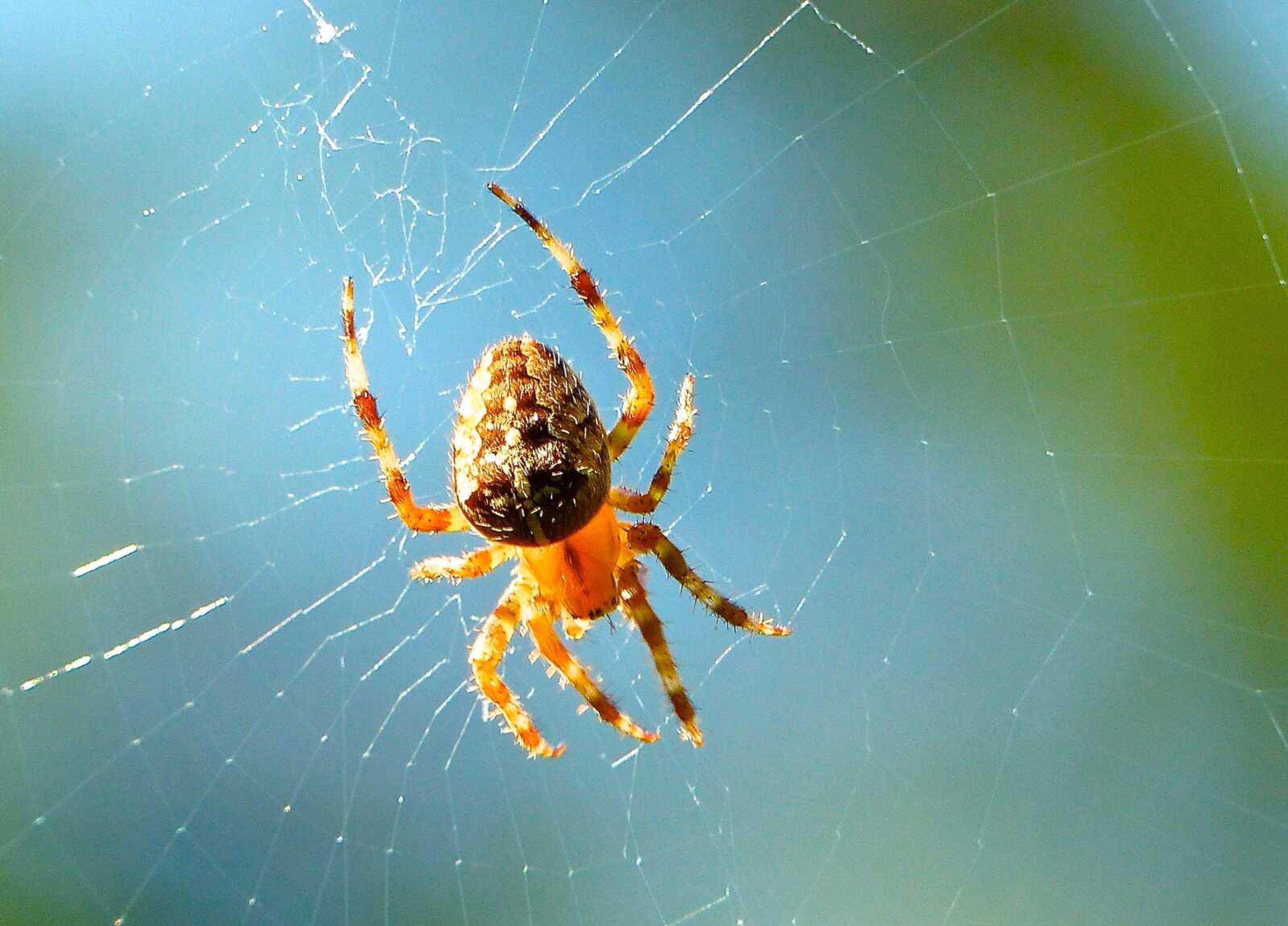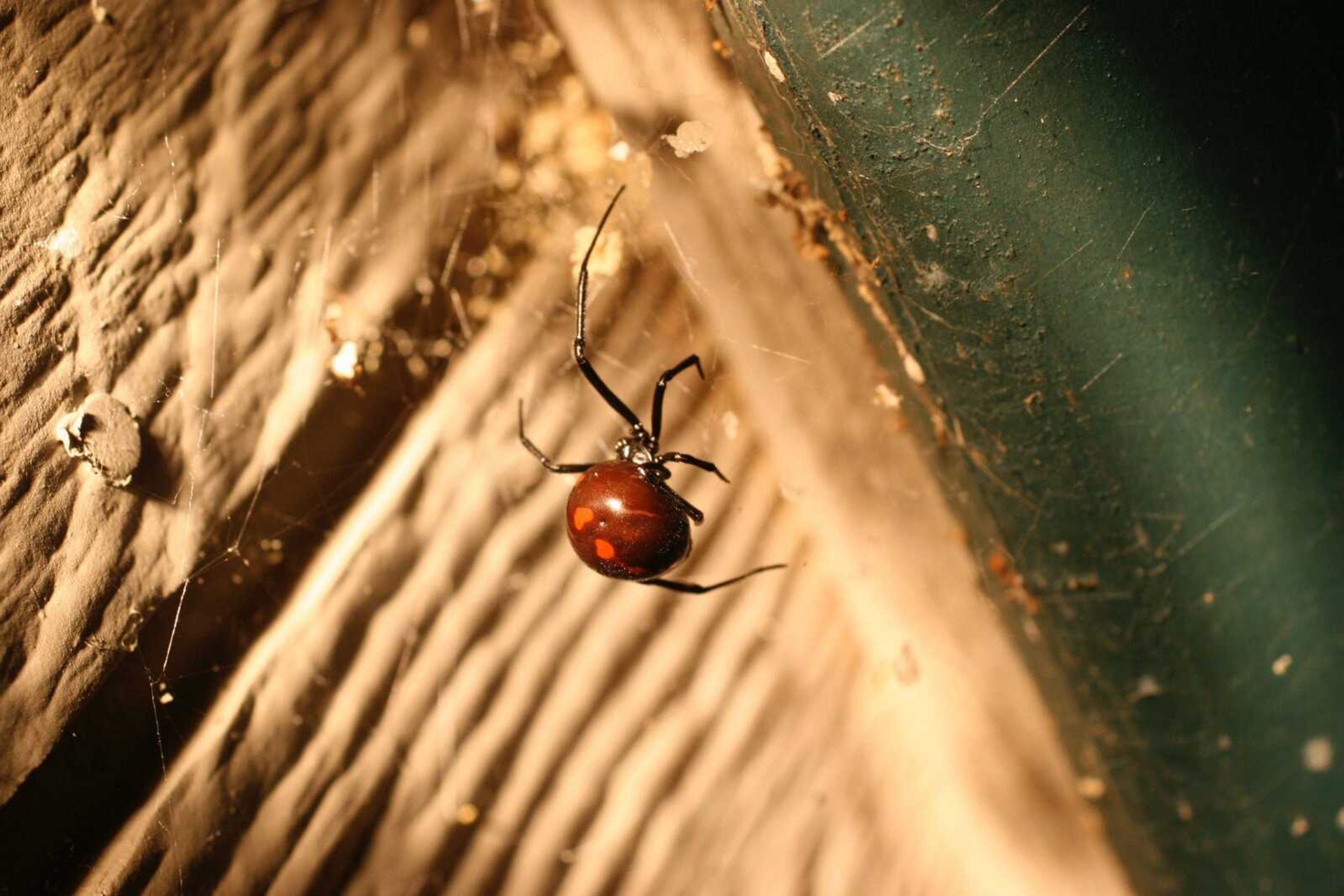Spiders are among most effective predators of plant pests
Although many people have a built-in aversion to them, spiders rank as one of the gardener's best tools for biological pest control. They also are one of the few pest predators that don't eat plants. "Spiders eat the (equivalent insect) weight of all the humans on earth annually," says Linda Rayor, an assistant professor of entomology at Cornell University. ...
Although many people have a built-in aversion to them, spiders rank as one of the gardener's best tools for biological pest control.
They also are one of the few pest predators that don't eat plants.
"Spiders eat the (equivalent insect) weight of all the humans on earth annually," says Linda Rayor, an assistant professor of entomology at Cornell University. "A significant percentage of those insects are herbivores or granivores (seed eaters) or other insects that adversely affect humans. Spiders perform a vital function."
There are more than 45,500 known spider species around the world, divided into 110 spider families, Rayor says.
"Few of those have a venom that affects us," she says. "The yellow sac spider, the black widow and the recluse. That's about it. And none are aggressive."

Spiders, including black widows, respond to movements in their webs, and that leads to people getting bitten, Rayor says.
"Black widows are super common in the desert around the U.S., but you'll also find them in many cities because they have water," she says. "Houses and edges of houses are perfect for black widows. They can build underneath and protect their webs."
Spiders use venom to kill or paralyze their prey. They actively hunt or spin webs to trap insects, invertebrates and even small vertebrates like lizards and frogs. What also makes them garden-friendly is that they don't eat plants, Rayor says.
"They'll eat a little pollen, maybe, but that's about it," she says. "They're totally beneficial to have in the garden."
On the unfavorable side, spiders are generalists in what they hunt and are cannibalistic. They feed on other spiders and many beneficial insects, including honeybees and butterflies.
Spiders also are not a good choice for taking out specific plant pests in fields or gardens if there's a particular outbreak you're trying to eradicate, Rayor says.
"But for reducing all prey abundance in certain areas, they're great," she adds.
Rather than try to eliminate spiders in or near homes, the knowledgeable, organic-leaning gardener prefers to recruit them. You can increase spider numbers in the garden by:
- Adding more trees, shrubs and perennials to provide anchor points for web-building spiders to spin their webs, says Gail Langellotto, an entomologist with Oregon State University's Extension Service.
- Allowing areas to go untilled, or leaving plant stalks standing for overwintering habitat. Many adult spiders emerge in early spring, before most other bio-control resources are available.
- Mulching with grass or wood chips to provide cover and humidity.
- Growing flowers that attract insect prey.
"Even if you want to bring spider numbers down around your property, consider that they're difficult to eradicate with pesticides," Langellotto says. "The amount and concentration needed is often higher than what's necessary to kill insects, [and that] poses a greater risk to humans. Heavy doses also will kill a lot of other beneficial insects."
For more about inviting spiders to the garden, see this Cornell University fact sheet: www.colostate.edu/Dept/CoopExt/4dmg/Pests/spiders.htm.
Connect with the Southeast Missourian Newsroom:
For corrections to this story or other insights for the editor, click here. To submit a letter to the editor, click here. To learn about the Southeast Missourian’s AI Policy, click here.










